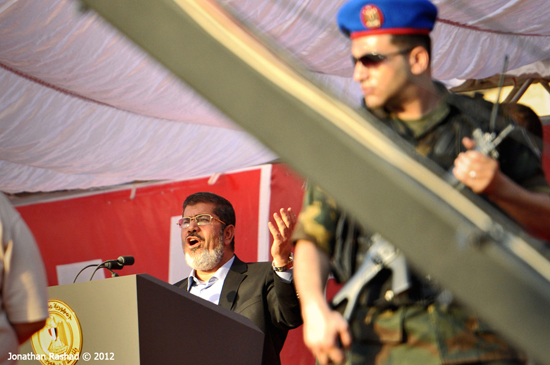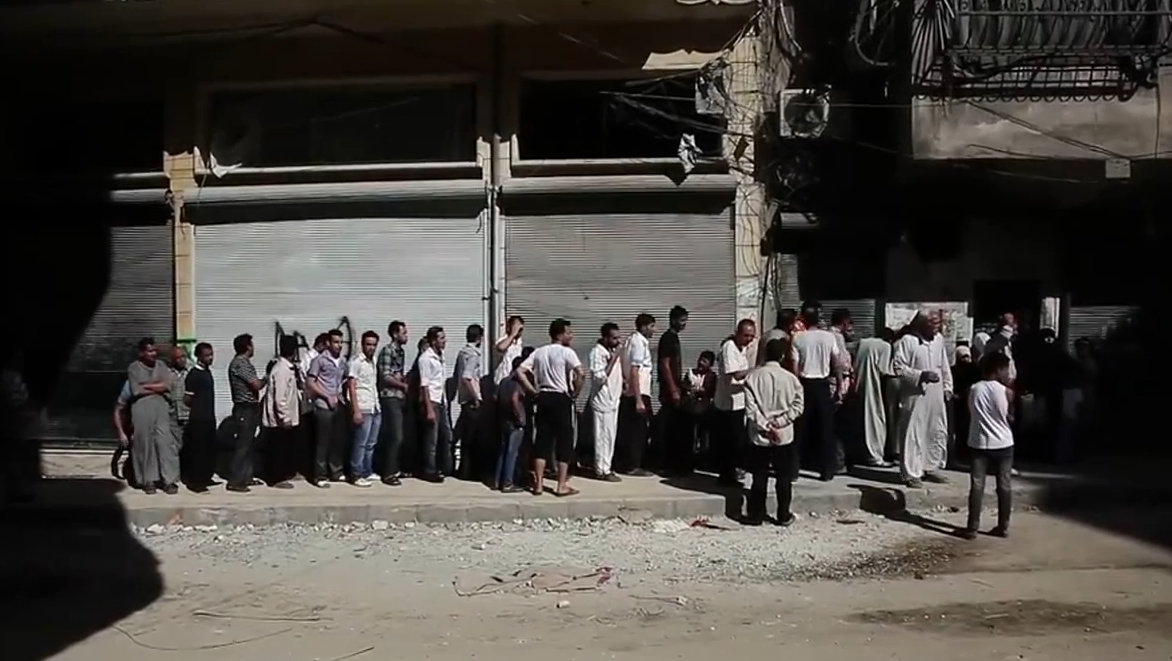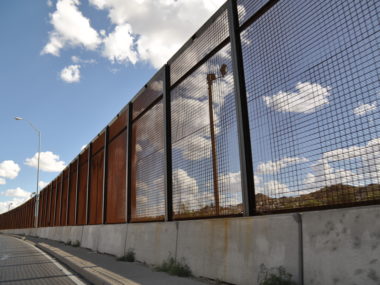
Guest post by Brent Sasley
In the aftermath of the Egyptian military’s overthrow of the Muslim Brotherhood government, observers have started to wonder what effect the coup will have on Islamist groups throughout the region. Shadi Hamid argues that the coup will have “profound implications for the future of political Islam, reverberating across the region in potentially dangerous ways.” It could well, he continued, convince such groups that participation in the political process is unwise. Less apocalyptically, Barbara Slavin contends that “Morsi’s removal is a warning that Islamic parties cannot count on religious identity alone to govern successfully and need to work constructively with others.”
The juxtaposition of these two pieces highlights the difficulty in trying to understand the coup’s potential consequences for the kinds of decisions other Islamist groups might make. But short of direct knowledge of the discussions Islamist leaders are holding behind closed doors, we cannot know for certain what drives their decisions. A glance at the history of Islamist involvement in pluralist politics suggests that the response is likely to be diverse and not a simple “no to elections.”
First, the specific countries or actors used for comparison matter. Hamid looks only at al-Qaeda, a group that has never suggested it might engage in the political process or that it should lay down its arms for a trial run at democracy. There’s no evidence that jihadist groups will change much of their behavior because of the coup. Alternately, will they plan more attacks out of fear they are on the defensive? Target more governments? Perhaps, but it’s also likely they would have done so if countries were becoming more democratic anyway, without the participation of Islamist parties.
Will McCants suggests that of comparable groups that do decide to participate, Salafi parties tend to be too radical and small to obtain broad support within the political system and so can participate without having to face the kind of choice the Brotherhood did. What Salafi violence might be precipitated seems due as much to intra-Islamist politics as anything else. (McCants continues that it’s too early to draw firm predictions.)
Slavin considers Turkey and Iran. But in the former, the AKP split off from the more hardline Welfare Party and may already have been undergoing a mild internal struggle over the character of the party. In fact, the military coup that ousted the first Islamist Prime Minister, Necmettin Erbakan, and the subsequent campaign to shut the party down convinced Recep Tayyip Erdoğan that participation in the democratic process was quite necessary. In Iran, the government is structured along a strict but specific interpretation of Shia Islam as conceived of by Ayatollah Khomeini that none of the main actors within the state want to change.
Second, the history of Islamist groups in the Middle East suggests that coups or similar “shocks” against them or Islamist parties in other states haven’t prevented non-jihadist groups from participating in democratic processes. In December 1991 the Algerian military cancelled elections in which the Islamic Salvation Front appeared to be doing very well, leading to a vicious civil war that lasted into the 2000s and killed over 100,000 Algerians. In 1997 the Turkish Armed Forces removed the first Islamist Prime Minister, Necmettin Erbakan, and then proceeded to purge Islamists from government, the bureaucracy, and the military.
Yet in 2002 the Justice and Development Party (AKP by its Turkish acronym) participated in national Turkish elections. In January 2006 Hamas participated in Palestinian elections. After its victory, Israel, the United States, Canada, and others began to hold back funds they had been channeling to the Palestinian Authority; after Hamas’s takeover of Gaza in June 2007, Israel — again supported by the US and Canada — imposed a blockade on the entire Strip. In July 2007 and then in 2011, the AKP continued to participate in parliamentary polls (winning the government both times). In 2008-2009 and 2012 Israel attacked Hamas in Gaza, forcing it to seek a ceasefire in both wars. And in the aftermath of the Arab revolutions, Islamist parties in Tunisia and Egypt actively participated in elections despite the fact that the military — once their nemesis — remained a powerful actor, while in Libya the process is complicated by the existence of both jihadist groups and parties that want to participate.
The evidence is only suggestive, but it’s enough to demonstrate that coups or similar shocks against Islamists haven’t precluded participation in subsequent democratic processes. But we need more than sweeping statements for effective comparisons, so that our conclusions are not skewed.
Brent E. Sasley is Assistant Professor in the Department of Political Science at the University of Texas at Arlington and tweets at @besasley. This piece was first published at Mideast Matrix.






2 comments
A really good article! I recently wrote something similar about how the events in Turkey could have a knock on effect through the Middle East and then Egypt imploded so I think the idea has a lot of merit.